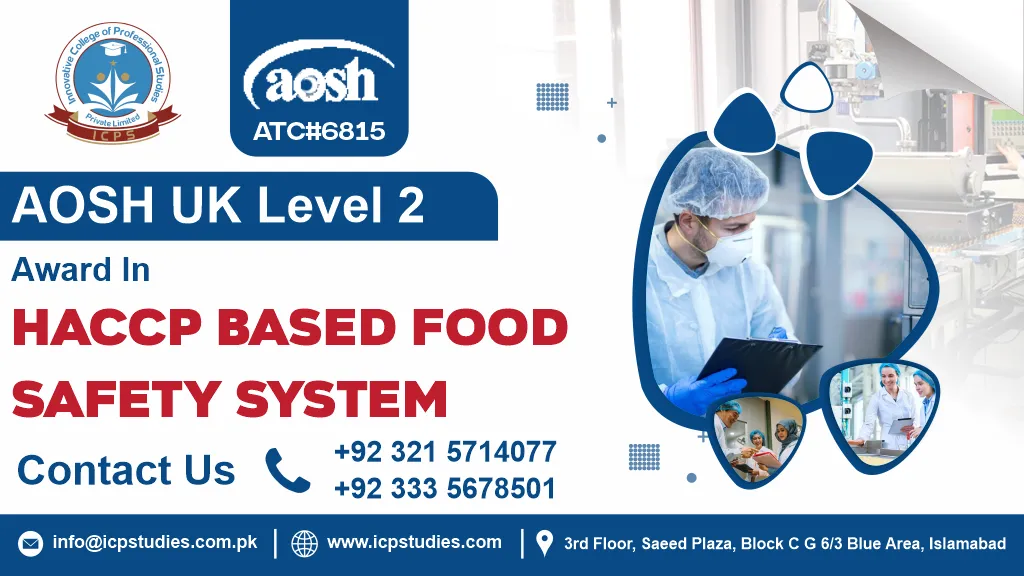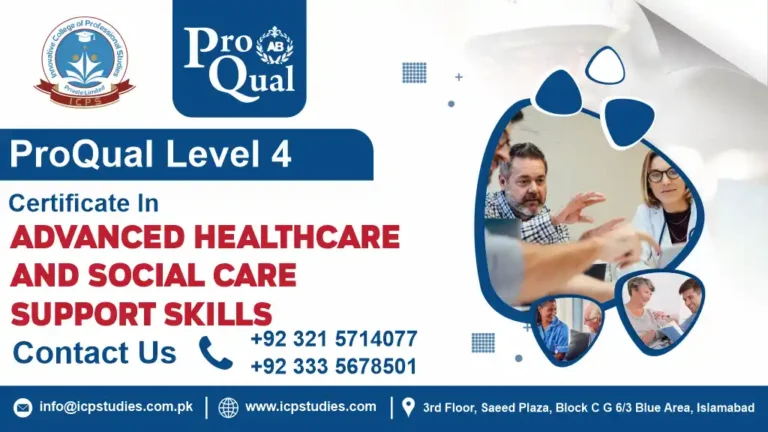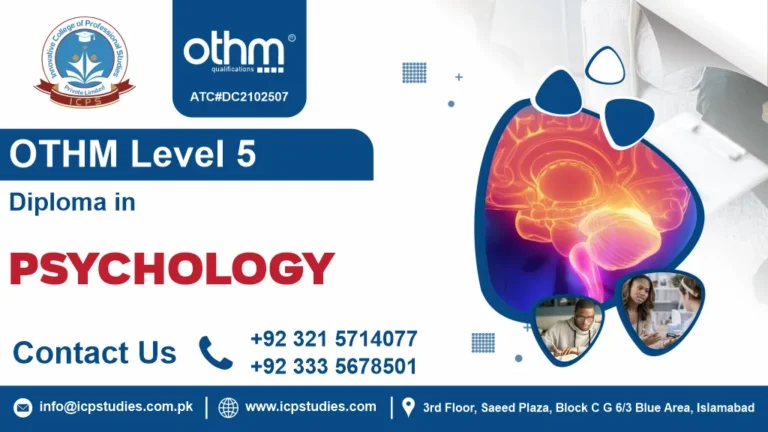Embark on an exciting journey of culinary mastery and safety expertise with the AOSH UK Level 2 Award in HACCP-based Food Safety System for Manufacturing. This program transcends the ordinary, offering more than just a certification—it’s your passport to unraveling the intricacies of Hazard Analysis and Critical Control Points (HACCP) principles, guaranteeing an unparalleled commitment to safety in the vibrant world of food manufacturing.
Picture this program not merely as a qualification but as your gateway to a profound understanding of HACCP principles that form the backbone of impeccable food safety. It’s a transformative experience designed to empower you with the knowledge and skills necessary to navigate the complexities of food manufacturing, ensuring the delivery of products that meet the highest safety standards.
Dive into practical insights that bring theory to life. This program goes beyond classroom learning, immersing you in real-world scenarios where you apply HACCP principles directly to manufacturing processes. It’s an experiential journey that equips you with hands-on expertise, making your knowledge not just theoretical but immediately applicable in the dynamic manufacturing environment.
Why settle for ordinary when you can become a leader in the global landscape of food safety? The Level 2 Award is your ticket to international recognition. Connect with industry leaders, forge valuable connections, and stay ahead of the curve with the latest advancements in food safety practices.
Enroll today and become a trailblazer in the field, contributing to a safer and more efficient food manufacturing process. The AOSH UK Level 2 Award in HACCP-based Food Safety System is not just a certification; it’s your invitation to a transformative journey where your commitment to food safety meets the pinnacle of excellence in manufacturing. The adventure begins now!
All About AOSH UK Level 2 Award in HACCP based Food Safety System in Manufacturing
Course Overview
Begin your culinary journey towards mastery and safety with the AOSH UK Level 2 Award in HACCP-based Food Safety System in Manufacturing. This esteemed certification isn’t merely a course; it’s your gateway to enhancing your role in the food manufacturing sector. Envision a realm where every facet of food production is meticulously orchestrated to deliver not only delightful flavors but also unparalleled safety.
Central to this program is Hazard Analysis and Critical Control Points (HACCP), a methodical approach to identifying, evaluating, and managing food safety hazards. The Level 2 Award delves deep into implementing HACCP principles within the manufacturing realm, equipping you with the expertise to navigate food safety intricacies with precision.
Why opt for the Level 2 Award? It transcends traditional training by offering a comprehensive grasp of HACCP customized for the manufacturing domain. Visualize yourself at the forefront of safeguarding food product safety, from raw materials to the final goods adorning store shelves.
Tailored for professionals across various roles in food manufacturing, including production teams, supervisors, and managers, the curriculum encompasses crucial elements such as HACCP fundamentals, critical control point identification, and seamless integration of effective safety protocols throughout the production process.
What distinguishes this program is its practical applicability. It doesn’t merely impart theoretical knowledge; it empowers you to implement HACCP principles in real-world manufacturing settings. Whether you’re a seasoned industry veteran or an aspiring newcomer, the Level 2 Award serves as your compass for mastering HACCP and upholding the highest standards of food safety.
Learning Outcomes
- Understanding HACCP Principles: Develop a solid comprehension of Hazard Analysis and Critical Control Points (HACCP) principles as they apply to the food manufacturing industry.
- Identification of Hazards: Acquire the skills to identify and assess potential hazards within the food manufacturing process, including biological, chemical, and physical hazards.
- Risk Assessment: Learn to conduct effective risk assessments related to food safety in a manufacturing context, ensuring a thorough understanding of potential risks and their implications.
- Critical Control Points (CCPs): Gain proficiency in identifying Critical Control Points (CCPs) in the manufacturing process and implement control measures to prevent, eliminate, or reduce identified hazards.
- Establishing Monitoring Procedures: Develop the ability to establish robust monitoring procedures for each Critical Control Point, ensuring ongoing control and prevention of hazards during the manufacturing process.
- Corrective Actions and Deviations: Understand the importance of implementing corrective actions in response to deviations from established critical limits, maintaining the integrity of the food safety system.
- Documentation and Record-Keeping: Acquire skills in maintaining accurate documentation and record-keeping, essential for monitoring, verification, and regulatory compliance in a food manufacturing setting.
- Communication of HACCP Principles: Develop effective communication skills to convey HACCP principles and procedures to relevant stakeholders within the manufacturing environment.
- Training and Awareness: Understand the significance of training and awareness programs to ensure that all personnel involved in the manufacturing process are well-informed and compliant with HACCP-based food safety measures.
- Integration of HACCP into Existing Systems: Learn to seamlessly integrate HACCP principles into existing food safety management systems, enhancing overall efficiency and effectiveness.
- Regulatory Compliance: Gain insights into relevant regulations and standards governing food safety in manufacturing, ensuring adherence to legal requirements and industry best practices.
- Continuous Improvement: Foster a culture of continuous improvement in HACCP-based food safety systems, encouraging ongoing assessment and enhancement of protocols to meet evolving industry standards.
- Practical Application of HACCP: Apply theoretical knowledge to practical scenarios, developing the ability to implement and maintain a HACCP-based food safety system within the manufacturing environment.
- Preventing Foodborne Illness: Understand the role of HACCP in preventing foodborne illnesses and ensuring the production of safe and high-quality food products for consumers.
Admission Criteria
- Educational Background: Applicants should have a minimum educational qualification, often equivalent to a high school diploma or its international equivalent. While specific academic requirements may vary, a foundational educational background is generally preferred.
- Professional Experience: While not always mandatory, applicants with relevant professional experience in the food manufacturing sector are often given preference. Experience in roles related to food production, quality control, or safety management is valuable.
- Language Proficiency: As the program may involve written assessments and communication in the English language, applicants are usually required to demonstrate proficiency in English. This may be assessed through standardized language proficiency tests or previous academic achievements.
Ideal Candidate
- Background in Food Manufacturing: The candidate should have a foundational background in food manufacturing, with experience or knowledge of the processes involved in producing, processing, and handling food products.
- Understanding of Food Safety Principles: An ideal candidate has a solid understanding of fundamental food safety principles, including hygiene practices, contamination prevention, and temperature control.
- Awareness of HACCP Concepts: The candidate should demonstrate awareness of HACCP concepts and their significance in ensuring the safety of food products. Prior exposure to HACCP principles is advantageous.
- Attention to Detail: Given the meticulous nature of HACCP, the ideal candidate should exhibit a keen attention to detail. They must be capable of identifying critical control points and potential hazards within the manufacturing process.
- Analytical and Critical Thinking Skills: Proficiency in analytical and critical thinking is crucial. The candidate should be able to analyze processes, assess risks, and make informed decisions to implement effective control measures.
- Communication Skills: Effective communication skills are essential for conveying HACCP principles and guidelines to team members. The ideal candidate can articulate complex concepts clearly and facilitate understanding among stakeholders.
- Commitment to Continuous Improvement: The candidate should embody a commitment to continuous improvement in food safety practices. This includes staying updated on industry standards, regulations, and advancements in HACCP methodologies.
- Team Collaboration: Given that HACCP implementation involves collaboration across various departments, the ideal candidate should be a team player, capable of working collaboratively with diverse teams to achieve common food safety goals.
- Compliance Knowledge: Familiarity with food safety regulations and compliance standards applicable to the manufacturing industry is beneficial. The ideal candidate understands the legal aspects and ensures adherence to regulatory requirements.
- Problem-Solving Aptitude: In the dynamic environment of food manufacturing, unforeseen challenges may arise. The ideal candidate possesses a problem-solving aptitude, finding effective and timely solutions to address potential issues in the HACCP system.
- Proactive Approach: The ideal candidate is proactive in identifying and addressing potential risks before they escalate. This proactive approach contributes to the prevention of food safety hazards and ensures the smooth functioning of the HACCP system.
- Passion for Food Safety: An inherent passion for ensuring the safety and quality of food products is a distinguishing trait. The ideal candidate is driven by a genuine commitment to upholding the highest standards of food safety in the manufacturing process.
Key Takeaways
Study Units
Unit 1: Introduction to HACCP and Food Safety Systems
- Overview of HACCP (Hazard Analysis and Critical Control Points)
- Importance of HACCP in the Manufacturing Industry
- Basic Principles of Food Safety Systems
- Regulatory Frameworks and Standards
Unit 2: Understanding Hazards in Food Manufacturing
- Identification of Biological Hazards
- Recognition of Chemical Hazards
- Assessment of Physical Hazards
- Emerging Issues in Food Safety
Unit 3: Preliminary Steps of HACCP
- Assembling the HACCP Team
- Defining the Scope and Objectives of the Food Safety System
- Product Description and Intended Use
- Constructing a Flow Diagram for Manufacturing Processes
Unit 4: Conducting Hazard Analysis
- Identifying Critical Control Points (CCPs)
- Determining Critical Limits for CCPs
- Hazard Analysis Methods and Tools
- Documentation and Record-Keeping
Unit 5: Establishing Critical Control Points (CCPs)
- Criteria for Identifying CCPs
- Monitoring CCPs and Deviation Procedures
- Corrective Actions for Non-Conformities
- Verification and Validation of CCPs
Unit 6: Developing HACCP-Based Procedures
- Creating Standard Operating Procedures (SOPs)
- Communication within the HACCP Team
- Training and Education on HACCP Principles
- Maintenance of the HACCP Plan
Unit 7: Implementation and Management of HACCP
- Integrating HACCP into Manufacturing Practices
- Monitoring and Reviewing the HACCP Plan
- Continuous Improvement Strategies
- Auditing and Evaluation of the HACCP System
Unit 8: Regulatory Compliance and Legal Aspects
- Understanding Food Safety Regulations
- Compliance with National and International Standards
- Legal Responsibilities in Food Manufacturing
- Case Studies and Industry Best Practices
Unit 9: Case Studies and Practical Application
- Real-world Case Studies in HACCP Implementation
- Hands-on Application of HACCP Principles in Manufacturing
- Group Exercises and Problem-Solving Scenarios
- Industry Insights from Guest Speakers
Unit 10: Final Assessment and Certification
- Summative Assessment of HACCP Knowledge
- Practical Evaluation of HACCP Implementation
- Certification Criteria and Requirements
- Continuous Professional Development Opportunities
FAQs for AOSH UK Level 2 Award in HACCP based Food Safety System in Manufacturing







